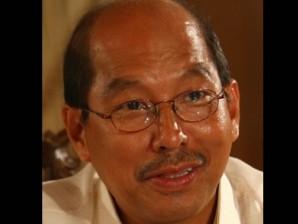MANILA, Philippines — Malacañang is proposing an additional P56-billion budget for the Department of Education in 2013 – 23 percent more than this year’s allocation — to support the K-12 program, according to Budget Secretary Florencio B. Abad.
Abad said in a statement the proposed budget increase for DepEd would cover funding for the hiring of 61,510 teachers, procurement of 31.1 million textbooks and teachers’ manuals, and the construction and rehabilitation of 31,789 classrooms with accompanying furniture and sanitation facilities as well as other needs of public elementary and secondary schools.
“To support the deployment of K-12 reforms, the DepEd has been allocated with a total of P292.7 billion (compared to its) P238.8-billion budget in 2012,” he said.
“This allocation will support the closure of all education resource gaps in 2013,” he added.
President Benigno Aquino III earlier this year approved the “K-12” program, which has added one more year in elementary education and one more year in secondary education in an effort to boost student competitiveness before going to college.
The program has drawn flak mainly from parents who lament the additional expenses that K-12 entails, but support from others who believe that this would bring the quality of Philippine education to international levels.
“It’s even more crucial for us to provide students with the proper classroom facilities, now that the K-12 program is in place,” Abad said. “The DepEd is also working vigorously to reverse the classroom backlog in the country and improve the student-to-teacher ratio in our public schools.”
The proposed bigger budget for DepEd is part of the P698.4 billion that Malacañang wants to allocate for social services, accounting for 35 percent of the P2 trillion it wants to spend in 2013.
Also, the proposed funding for social services next year is P85 billion or 14 percent higher than this year’s P613.4 billion.
Abad said this would be in line with the Aquino administration’s priority agenda of reducing poverty incidence to 16.6 percent by 2016.
“This (2013) budget not only provides direct, immediate and substantial assistance to the poor but also empowers them through meaningful human investments,” he said.
